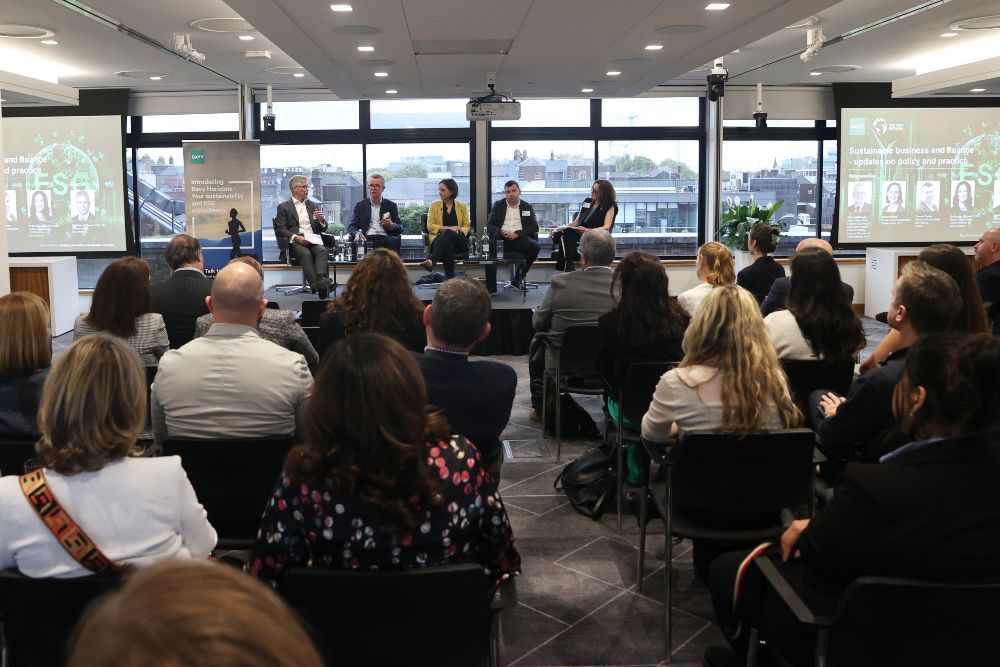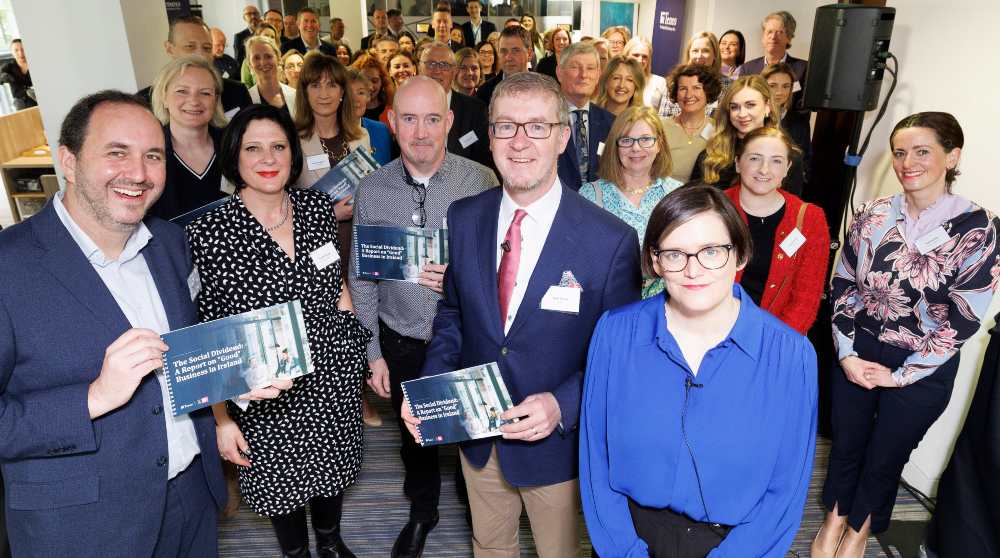The long-term ESG benefits of B Corp certification, especially for Irish companies, remain to be fully understood, says Bank of Ireland’s head of Food & Beverage Sector Lucy Ryan.
B Corp, the environmental accreditation companies use to highlight their work as a force for good and their positive global impact, first originated in 2006 in the United States. The first B Corp certifications took place in 2007, and B Lab Europe was founded in 2013.
There are now over 8,000 B Corp certified companies in almost 100 countries worldwide – spanning more than 160 different industries.
“CSRD will soon bring a new rigour to sustainability reporting, and this will help establish B Corp’s long-term effectiveness and relevance”
In 2023 a B Lab office was set up in Ireland with ambitious growth targets. There are now 65 B Corp Irish certified operations, with 16 in Northern Ireland, ranging from the service and travel industries to hotels and food producers an that number continues to climb. One of the first B Corp companies in Ireland was Earth’s Edge, a trekking tour operator, and its CEO progressed to become B Lab Ireland’s first Director.
June 2024 saw Cork city host its first ever B Corp event, with local B Corp members and advocates inviting businesses from across the region to understand and discuss the benefits of the global certification.
Keynote speaker, Marcello Palazzi, founder of B Lab Europe, set the challenge to attendees to create a leading B Corp city, as part of a wider vision for the city, province and country. Could Cork now follow the lead of cities like Rome, Barcelona or New York to become a B Corp certified city?
Having B Corp accreditation was once considered a niche way for a company to highlight its environmental and social values. In its early years it was often primarily associated with companies that placed a premium on its fair-trade practises.
ESG status symbols
Patagonia, the clothing company, and a forerunner in sustainability, achieved B Corp status in 2012. In recent years however, as sustainability has increasingly come to the fore, B Corp has attracted a wider range of businesses, with many larger corporate companies gaining B Corp status. 2023 saw a surge in new entrants with over 1,800 businesses becoming B Corp certified.
The B Corp certification process requires a B Impact Assessment, a thorough business assessment, measuring the positive impact on workers, suppliers, community, and the environment. The certification period is over six months, often longer, with different B Corp assessment pathways based on company size, sector, and location. Once the business estimates it has reached a score of at least 80 the assessment is submitted to B Lab for evaluation and verification, and after review, B Lab awards its score (80+) before accreditation.
Despite the overall positivity surrounding the process, B Corp still has its critics, with some questioning its decarbonisation benefits. Detractors say that it is difficult to assess how much B Corp companies are actually reducing their negative impact, and the B Lab website does not publish data associated with each company’s assessment.
However, in 2024 changes to B Corp standards were announced, the most significant transformation in its 19 year history. To reflect increased global challenges, such as climate change and inequality, there will be stronger governance requirements, heightened focus on climate action, and ongoing impact measurement.
There’s also a push to align B Corp standards with existing regulations, like the EU’s Sustainability Reporting Standards and The Green Claims code.
Despite the accreditation process tightening, food and beverage companies have increasingly sought, and gained, B Corp certification. These businesses tend to hold a progressive outlook and B Corp certification enhances their reputation for both customers and consumers alike.
Large international businesses to gain certification include Nespresso, San Pellegrino and Innocent Drinks, whilst in Ireland B Corp companies range from coffee roasters Velo and Bell Lane Coffee to food producers like Bread 41 bakery, O’Brien’s Fine Foods and Fiid. Alcoholic drinks producers like Boatyard Distillery and Baileys are also B Corp certified.
The long term ESG benefits of B Corp certification, especially for Irish companies, remain to be fully understood. It does however provide a clear framework and a structure to help businesses develop sustainable future plans for themselves, their industry, and their investors.
From an EU perspective, the Corporate Social Responsible Directive (CSRD) will soon bring a new rigour to sustainability reporting, and this will help establish B Corp’s long-term effectiveness and relevance.
-
Bank of Ireland is welcoming new customers every day – funding investments, working capital and expansions across multiple sectors. To learn more, click here
-
For support in challenging times, click here
-
Listen to the ThinkBusiness Podcast for business insights and inspiration. All episodes are here. You can also listen to the Podcast on:
-
Spotify
-
SoundCloud
-
Apple





